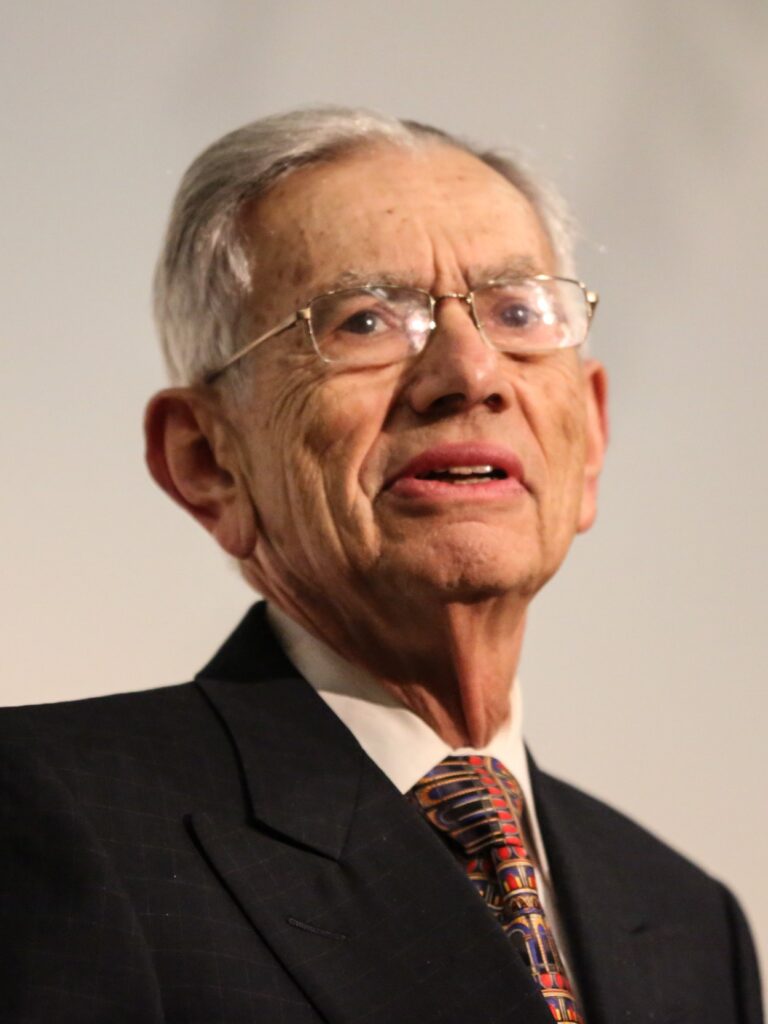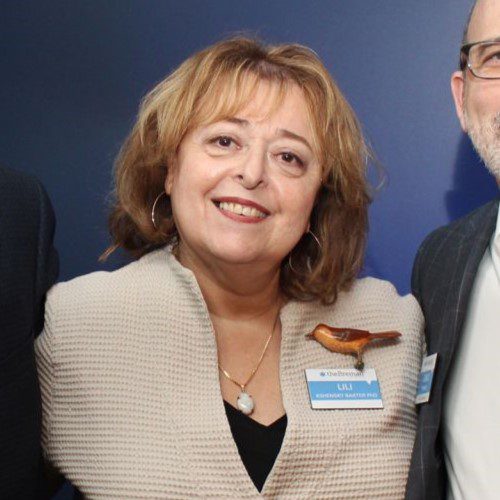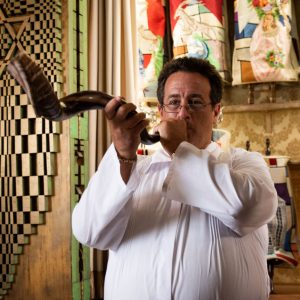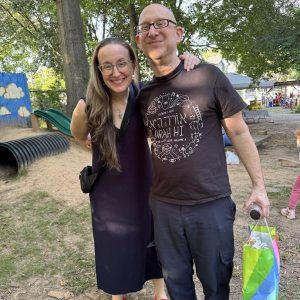MaNishma with Rabbi Arnold Goodman
Parshat Nitzavim
The Fragile Flower of Trust

The four Hebrew words comprising Elul are interpreted as an acronym for the beautiful verse in Song of songs, "I am my beloved's, and my beloved is mine." These words spoken by beloveds reflect the deep love of life's partners for one another.
Traditionally the groom, when placing the ring on his beloved's finger, recites, "With this ring you are sanctified to me," and this is no trivial promise. The bride, by extending her finger upon which the ring is placed or by placing a ring on the finger of her groom, signifies that she accepts being in a sanctified relationship with her beloved. They are embraced by their mutual acts and have entered into a relationship founded on trust. This dynamic is also obviously implicit in the double ring ceremonies that are the norm in most contemporary ceremonies.
The real challenge of the relationship, however, is to establish and deepen emunah–mutual trust in one another. The relationship formed by promises under the chuppah cannot endure without trust. There is a great difference between a wedding and a marriage. The former is an emotion-filled celebration; shared by all in attendance. Then, when the last guests have departed, the couple is faced with the formidable challenge of building a marriage on this infrastructure of faith and trust.
A strange story in the Talmud (Ketubot 62b) sensitizes us to the consequences of a loss of trust. Rabbi Rechumi, a fourth century Babylonian scholar, studied in the renowned Babylonian academy at Mehuza. The accepted custom was for these scholars to be separated from their wives for prolonged periods, at times–even for years. This, obviously, is not our way today, but it was a common practice in the past. The relationship was built on mutual trust; he would immerse himself in Torah with the understanding that he would return at a mutually agreed upon time.
Rabbi Rechumi's practice was to rejoin his wife once a year–on the day before Yom Kippur. She would eagerly await his arrival and the time they would be with one another–albeit for but a day. The Talmud records that one year on the day he was to return, Rabbi Rechumi was sitting on the roof so totally engrossed in his studies that he became oblivious to the passage of time, and he failed to return home.
His wife, of course, had prepared herself for this annual reunion and, as the day wore on, she kept saying to herself, "Soon he will be at the door, soon he will be here."The sounds of every footstep outside raised her hopes that he was about to appear.
Sunset came, Yom Kippur had begun and with the intensity of her disappointment and sorrow, her eyes filled with tears, and it was at that very moment that the roof on which Rabbi Rechumi was seated collapsed and he plunged to his death.
To my mind this strange story of the tears in her eyes and the collapsed roof that buried him, is a metaphor for the disintegration of their relationship–it's very death. Rabbi Rechumi had violated the trust that was essential to their marriage, and just as tears cannot be returned to the eye or the collapsed roof be put together, so could the marriage no longer endure.
R. Rechumi's failure may seem trivial in our eyes, but this is a story of how a loss of trust can cause a marriage to dissolve. Trust is much like a delicate flower to be handled with care and tenderness.
What is true of marriage is true of all relationships. Elul and the forthcoming Days of Awe challenge us to assess our actions to determine if, when, and how we may have violated a trust–often an unwritten agreement between us and the other. The task demanded of us is to make an honest effort to effect a reconciliation and hopefully the other's heart will be open to our sincere expressions of regret.
Fortunately, our Tradition encourages us to have faith that our Heavenly Partner will always keep the door open for us to enter into a reconciliation with Him. We can commit or re-commit ourselves to embrace a life of Mitzvah. He, however, cannot–and will not–fully embrace us and accept our return or teshuvah until we have made an honest effort to reach out to the others in our lives: spouses, children, parents, family, friends, co-workers, etc.
The challenge of this season is to remind ourselves of promises made, of agreements entered into, and above all, of the essential faith and trust that must undergird the infrastructure of our many relationships.
—
From the holy city of Jerusalem, my best wishes for Shabbat shalom umevorach, a Shabbat of peace and of blessing and for a shana tovah u'metukah–a sweet new year.






























